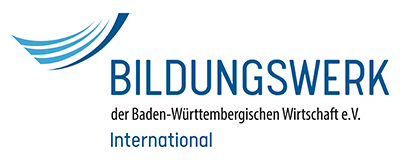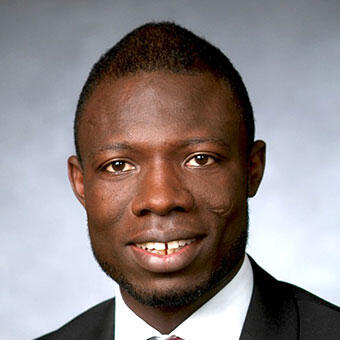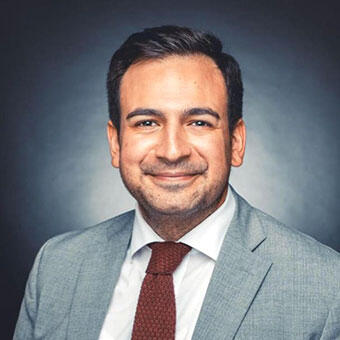Dualised training for the future in Rwanda
The Bildungswerk der Baden-Württembergischen Wirtschaft (BIWE) is using the "PartnerRwanda" project to implement dual training programmes and practice-based short-term training in Rwanda.
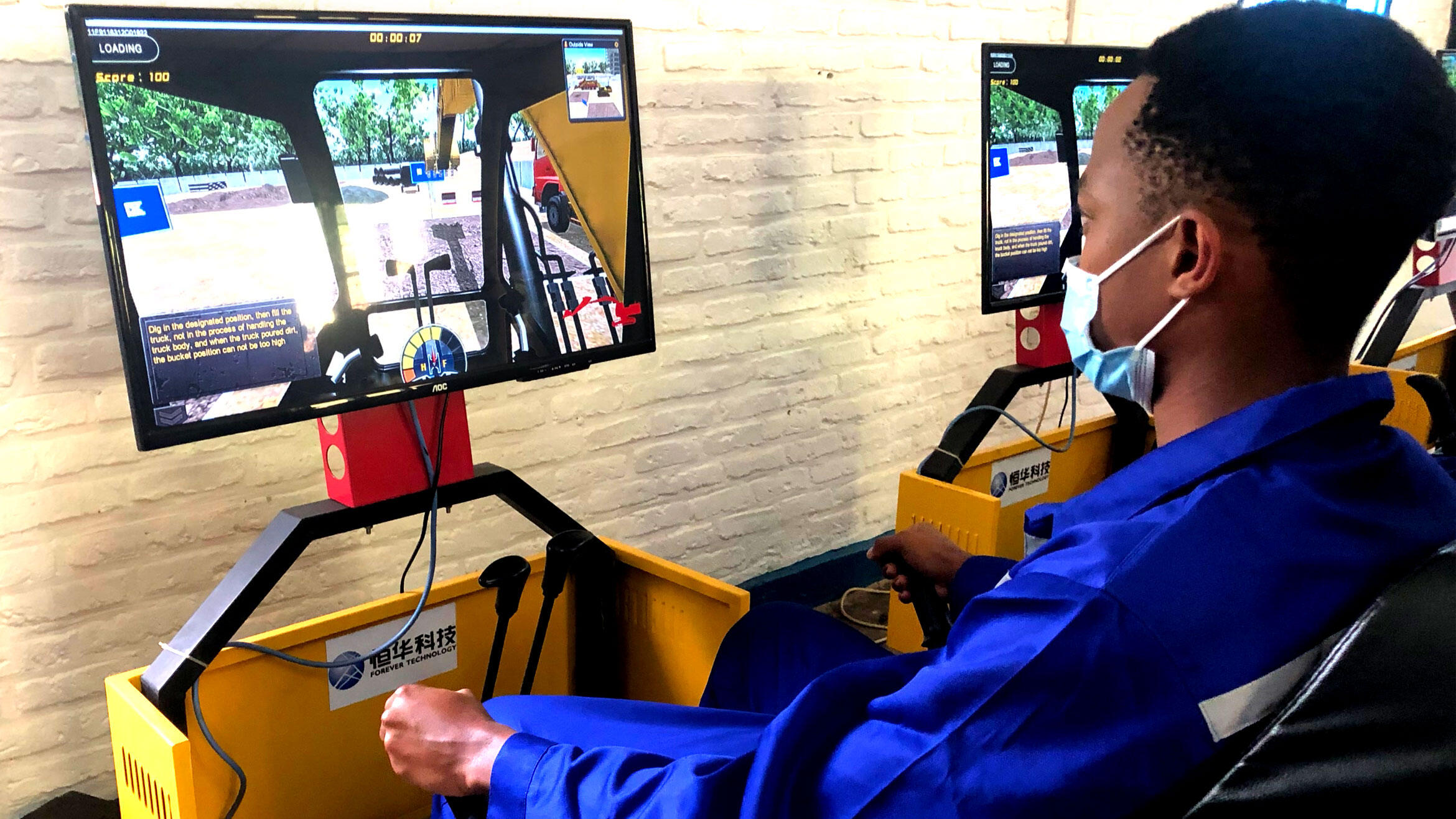
Before the real construction machine is used, a simulation training must be completed
The employers' education and training organisation from Baden-Württemberg (Bildungswerk der Baden-Württembergischen Wirtschaft, BIWE) has been involved in Rwanda since 2017 and is supporting the country in setting up practice-based dualised training.
The aim is for young people in particular to benefit from dualised training, ideally enabling them to successfully transition into a profession and into employment in order to earn their own income and create future opportunities for themselves
Two main pillars form the basis of the PartnerRwanda project.
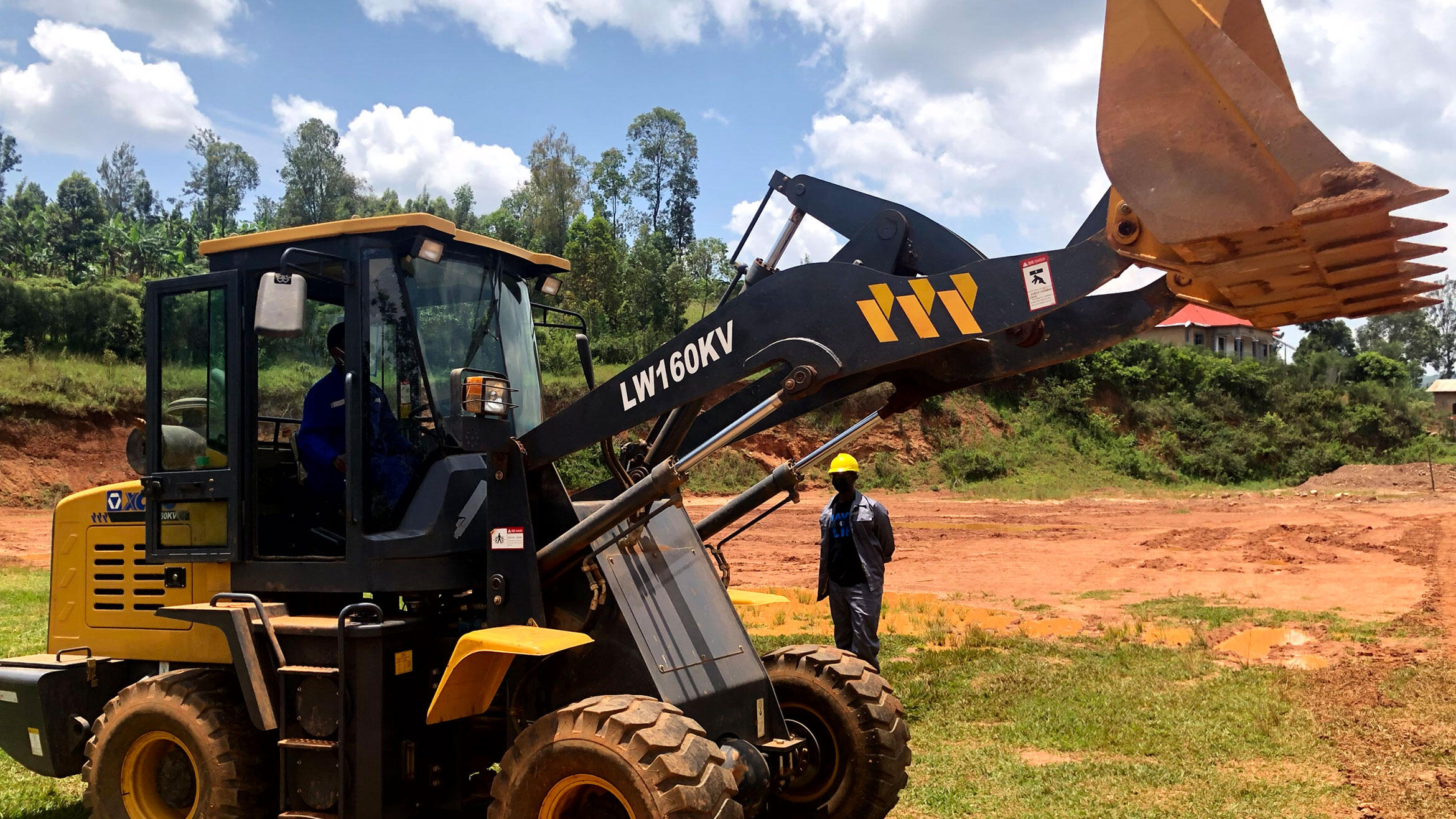
Practical training on a construction machine
Dual training project pillar
One pillar is the implementation of dual training programmes. The training courses match labour market requirements and help unemployed young people to make the transition into a profession and into employment.
For this, the BIWE is adapting elements of the German dual system to local conditions, for example to the requirements of local companies. In specific terms, school-based theory and company-based practice are combined in a one-year or short-term training course. For the end of the training, BIWE has developed support measures to help the young person make the transition to the labour market These measures include, for example, applicant training and links with institutions that can provide support when setting up a business.
The project follows the competence-based learning approach. The one-year training course is for the automotive trade at the Integrated Polytechnic Regional Centre (IPRC) Kigali and for household electronics trade at the SOS Technical High School.
Short-term training project pillar
PartnerRwanda's second pillar comprises practice-based, short-term training which usually takes two to three months. This is followed directly by a competence trial in a company, usually in the form of a placement.
The training specialisms are "Operation & Maintenance of Heavy Machinery" and "Sales & Customer Care".
Trainees receive a certificate of qualification for each training course and they use these when applying for jobs in the labour market. The certificate is issued by Rwanda TVET Board (RTB). RTB acts as the national authority with oversight of all vocational schools in the country. The board ensures accreditation and issues certificates.
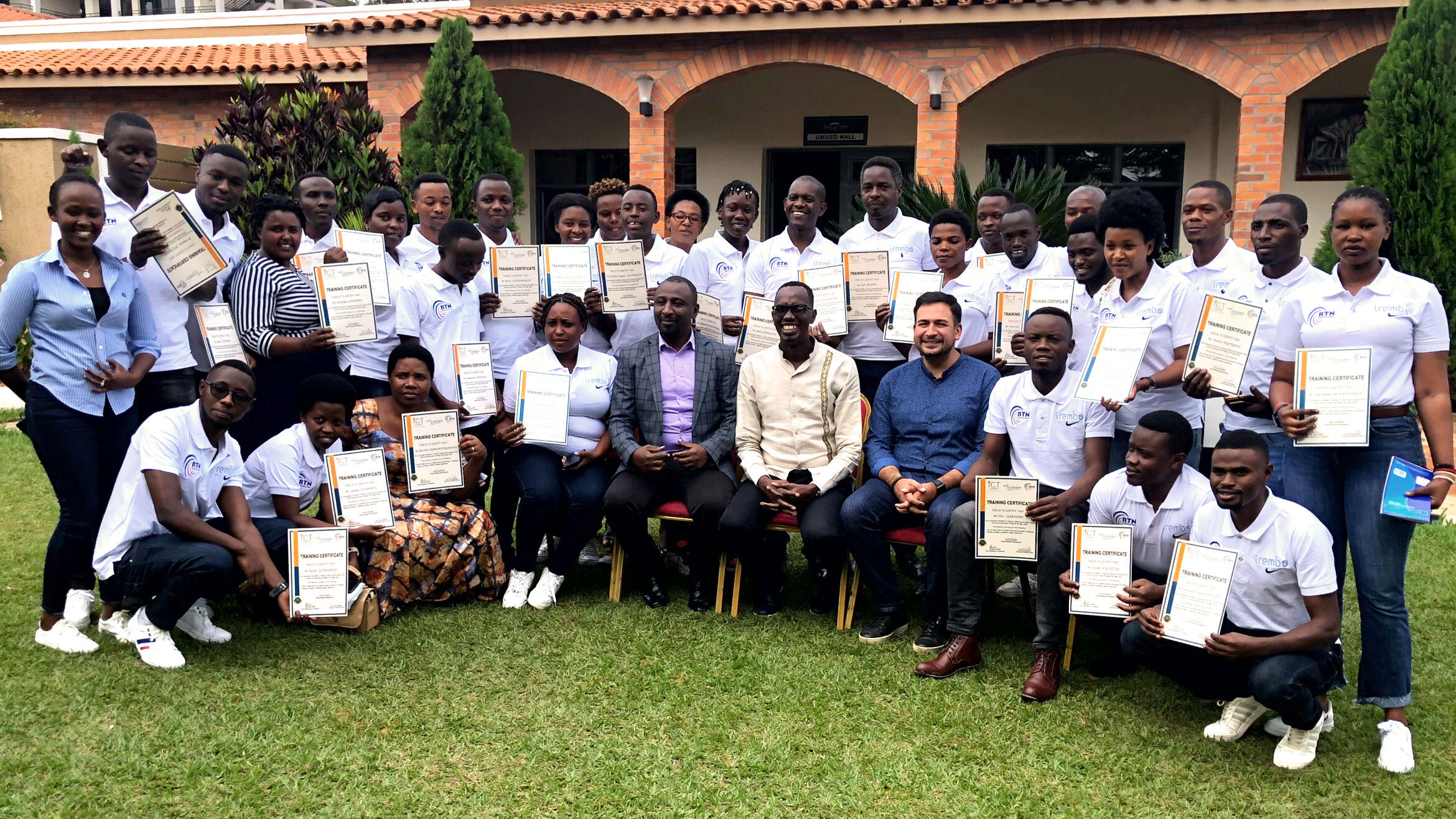
First graduating class of the "Digital Sales Agent"
Strong interest from the private sector
Alongside this, the BIWE also supports PartnerRwanda partner institutions in running training courses and in the advanced and continuing education and training of teachers and company-based trainers. Partner institutions include the administrative bodies of the Ministry of Education in the area of vocational education and training.
So far, since the start of the project, around 600 individuals (as of September 2022) have participated in a training course. The project is currently working with over 30 companies in the areas of electronics, construction distribution and in the automotive industry.
The most well-known partner company in Germany is the Volkswagen Group (VW Mobility and CFAO) with which BIWE has signed a cooperation agreement. This means that teachers on the first Train-the-Trainer course are now able to complete the practical phase of their work with Volkswagen in Rwanda.
The "PartnerRwanda" project is being funded by the German Federal Ministry for Economic Cooperation and Development (BMZ) via sequa gGmbH and is part of the special initiative "Training and Employment".
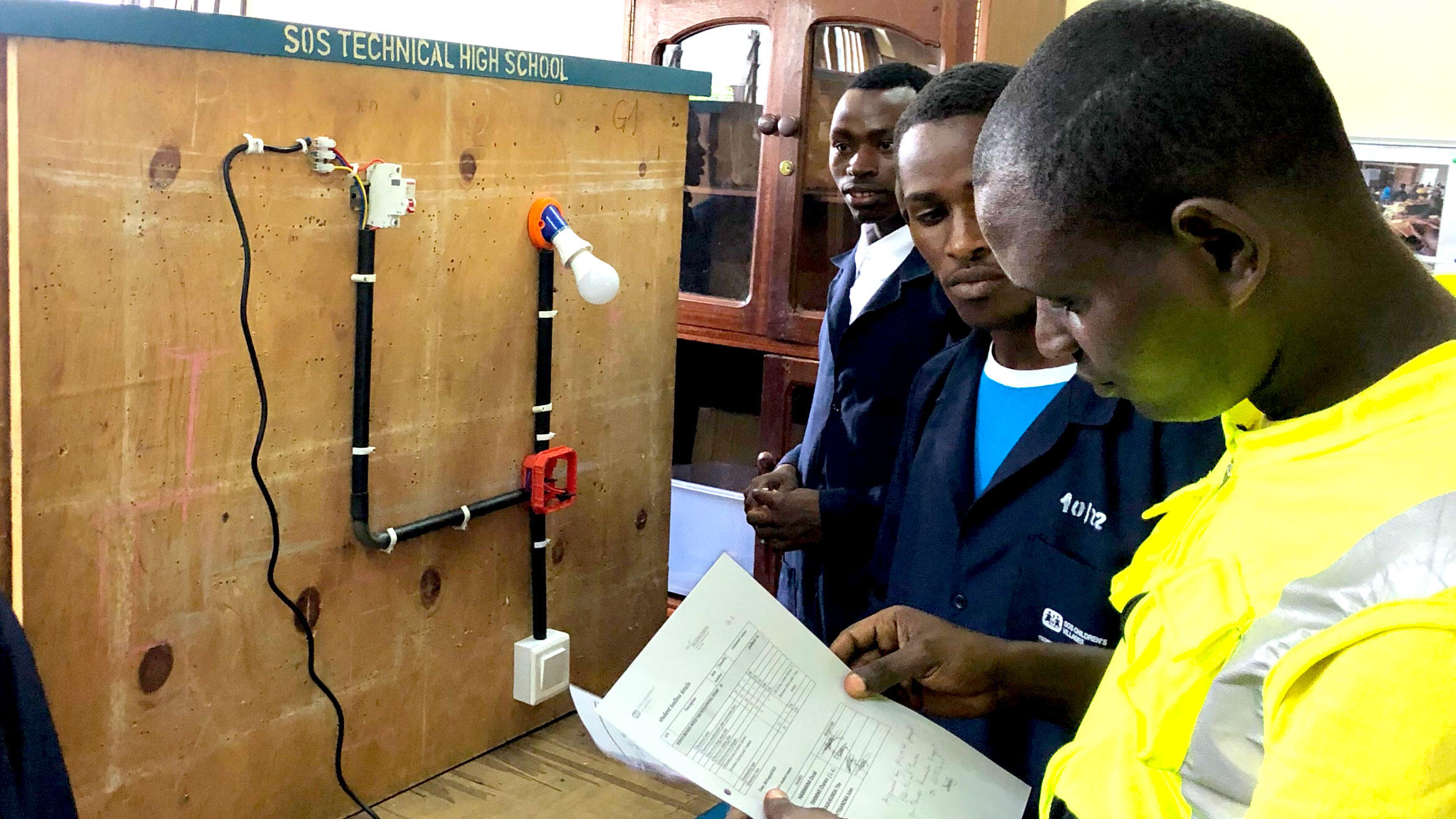
Practical training on a light wall to become an electrician
Why Rwanda?
Rwanda is one of Africa's emerging economies.
The crafts and trade sector in Rwanda has a key role to play in this and represents a large labour market. However, there is also a lack of qualified workers in Rwanda. This shortage can be mitigated by a higher level of training.
The population is also continuing to grow in Rwanda and, as a result, around 280,000 younger Rwandans flood onto the labour market each year. It is therefore essential to create new and productive jobs and structures to support high-quality training.
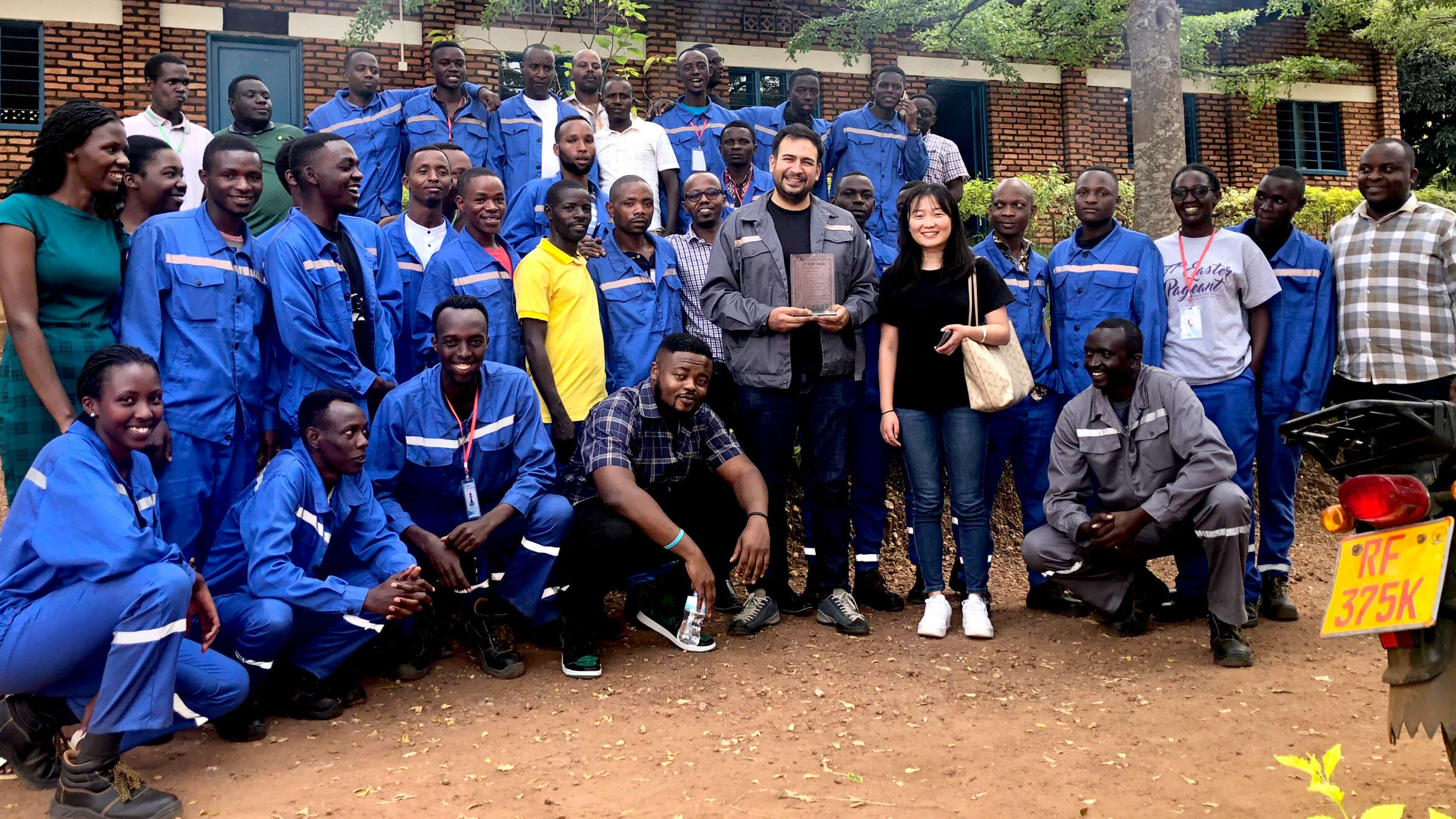
The second class has successfully completed their training to become construction machine operators
BIWE activities in Rwanda
Established in 1971, the Bildungswerk der Baden-Württembergischen Wirtschaft (BIWE) is the education and training organisation of employers from Germany's south-western state of Baden-Württemberg. The overarching goal is to increase the employability of men and women through their participation in VET measures which have a high degree of practical relevance.
BIWE is currently running two projects in Rwanda. One of the projects is "PartnerRwanda" and is being funded by the German Federal Ministry for Economic Cooperation and Development (BMZ) via sequa gGmbH and is part of the special initiative "Training and Employment".
Our implementation partners in Rwanda are the Technical High School of SOS Children's Villages, Rwanda, and one of the eight Integrated Polytechnical Regional Centers in Rwanda (IPRC Kigali).
Collaboration for the project began in November 2020.
